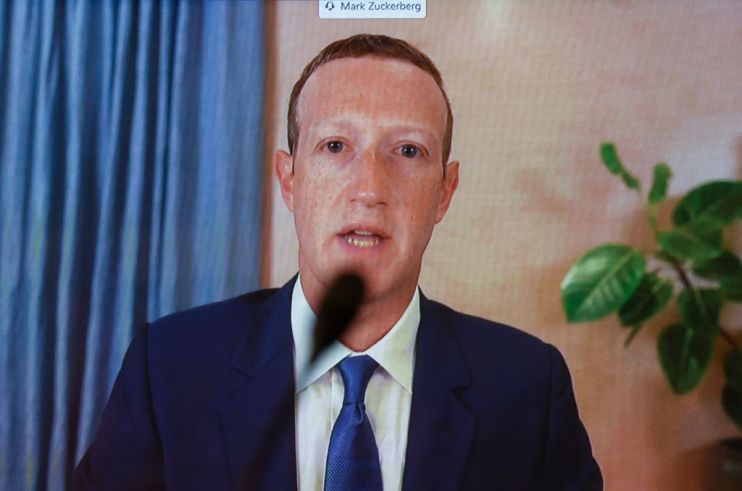Zuckerberg denies Facebook was to blame for Capitol riots

Facebook boss Mark Zuckerberg has denied his social media site was responsible for the storming of the US Capitol in January, placing the blame instead with former president Donald Trump.
Appearing in front of a House committee yesterday, Zuckerberg hit back at suggestions that tech platforms were to blame for allowing the spread of misinformation and hate speech.
“I think that the responsibility here lies with the people who took the actions to break the law,” he said.
He also pointed the finger at “the people who spread that content, including the president, but others as well, with repeated rhetoric over time saying that the election was rigged and encouraging people to organise”.
The comments came during a mammoth hearing, during which politicians grilled Zuckerberg alongside Google boss Sundar Pichai and Twitter’s Jack Dorsey.
The tech chiefs faced questions over social media’s role in the violent insurrection on 6 January, as well as the spread of Covid-19 misinformation and concerns over mental health.
While the hearing was virtual, protesters from advocacy group SumOfUs placed cut-outs of the three chief executives outside the Capitol.
Zuckerberg denied that social media was to blame for polarisation in American society, adding: “I believe that the division we see today is primarily the result of a political and media environment that drives Americans apart.”
But he did acknowledge that the platform had more work to do in content moderation.
Dorsey was more willing to accept that his company bore some responsibility for the incident, but insisted the “broader ecosystem” had to be taken into account.
While Democrats focused their questions on misinformation, Republicans asked the bosses whether their platforms were stifling conservative voices.
Trump has been permanently blocked from Twitter and is still suspended from Facebook and Youtube, though it is not yet clear whether he will be allowed back on.
Some politicians are calling for reform of Section 230 of the Communications Decency Act, which protects platforms for liability over user content.
The sites have warned that scrapping it entirely would harm free speech, but Facebook has suggested it is open to a reform of the law.
Democrat Frank Pallone, chair of the committee, last night warned the companies: “Your business model itself has become the problem and the time for self-regulation is over. It’s time we legislate to hold you accountable.”